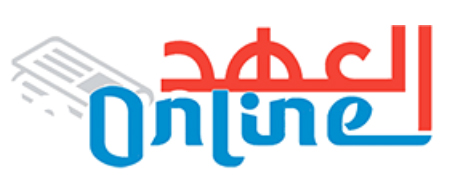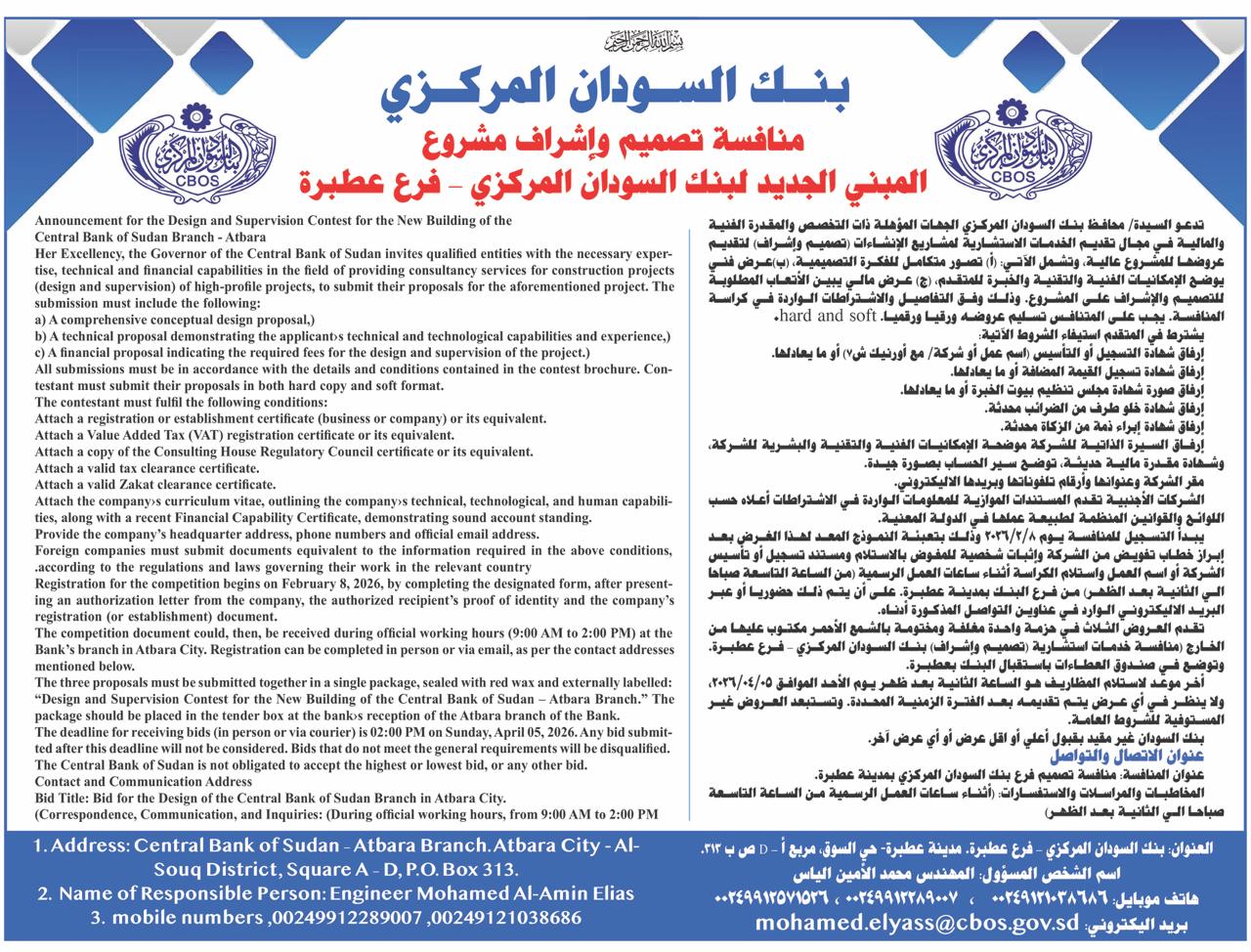د. محمد يوسف قباني يكتب: الفتنة والافتراق والمخالفة: مقاربة لثلاث كلمات يتنفسها الواقع السوداني المأزوم – من التعدد البنّاء إلى التمزق المدمّر.. Sedition, Separation, and Dissent: An approach to three words that breathe life into Sudan’s distressed reality – from constructive pluralism to devastating rupture. Dr. Mohamed Elgabbani..

د. محمد يوسف قباني يكتب: الفتنة والافتراق والمخالفة: مقاربة لثلاث كلمات يتنفسها الواقع السوداني المأزوم – من التعدد البنّاء إلى التمزق المدمّر..
Sedition, Separation, and Dissent: An approach to three words that breathe life into Sudan’s distressed reality – from constructive pluralism to devastating rupture.
Dr. Mohamed Elgabbani..
في مشهد يتقاذفه الألم وتثقل كاهله الأزمات، تتكرر في الخطاب السوداني المعاصر ثلاث كلمات كأنها ثلاثية مرّة: “المخالفة”، و”الفتنة”، و”الافتراق”. كلمات قد تبدو متقاربة في ظاهرها، لكنها تحمل في جوفها دلالات متفاوتة، تتدرج من التعدد البنّاء إلى التمزق المدمّر. وبين هذه الثلاثية، يتنفس الواقع السوداني بكل ما فيه من صراعات ومآزق، تتغذى من سوء الفهم، وتأجيج الخطاب، وغياب الرؤية الجامعة.
فما الفرق بين “المخالفة” و”الفتنة” و”الافتراق”؟ وكيف يمكن تحويل هذا التدرج السلبي إلى فرصة وعي وبناء؟ وما الذي جعل من هذه الكلمات سمات ثابتة في المشهد السوداني الحديث؟
إذ يعيش السودان اليوم في حالة استقطاب حاد، تتنفس فيها كلمات مثل “المخالفة” و”الفتنة” و”الافتراق” كأنها قدر لا مفر منه. فبعد أن كان التعدد الثقافي والسياسي مصدر إثراء، تحول إلى عامل تمزق يهدد النسيج
الاجتماعي. هذه المفاهيم ليست مجرد مصطلحات نظرية، بل هي وقائع يومية يعيشها السودانيون في صراعاتهم السياسية والاجتماعية. فكيف تحول الاختلاف من تنوع بنّاء إلى سلاح مدمّر؟ وما سبل الخروج من هذا المأزق؟
ما بين الاختلاف المشروع والمخالفة الظالمة .. في الأصل، المخالفة (حين يتحول الاختلاف من حق إلى تهمة) فالاختلاف في الرأي، وهو حق طبيعي في أي مجتمع سليم. لكن في السودان، تحولت إلى وصمة تُستخدم لإقصاء الآخر ونزع الشرعية عنه. ومظاهرها اليوم عديدة، نذكر منها:
1. اتهام الأحزاب بعضها بـ”الخيانة” لمجرد الاختلاف في الرؤية.
2. تحويل النقاش السياسي إلى معارك شخصية.
3. الخطر الأكبر هو تحوّل السياسة من صراع أفكار وأطروحات وطنية إلى صراع هويات.
الإرث التاريخي والاستخدام السياسي .. فالفتنة في التراث الإسلامي تعني الفرقة والافتراق والاضطراب، وقد استُخدمت تاريخياً في الصراعات السودانية كسلاح لتبرير القمع.
وسؤالي هنا، كيف تُحرّك الفتنة اليوم؟
1. عبر خطاب التحريض الطائفي أو الإثني.
2. باستدعاء تاريخ الصراعات لترهيب الناس من “الآخر”.
وسؤالي الثاني، لماذا تنجح؟ لأنها تلاعب بالعواطف أكثر من العقول.
فالافتراق (من أزمة ثقة إلى انهيار كلي) هو الانقسام الحاد الذي يتجاوز الخلاف إلى القطيعة. في السودان، لم يعد الافتراق سياسياً فقط، بل اجتماعياً وعائلياً، وهذه أمثلة واقعية:
1. انقسام العائلات بسبب الولاءات الحزبية.
2. تحول بعض المدن إلى “كانتونات” سياسية متنافرة.
والنتيجة وللأسف: فقدان الثقة في أي مشروع وطني مشترك.
وسؤالي قبل الأخير، هل من مسار للعودة من حافة الهاوية؟
فالخروج من هذا المأزق يتطلب اعترافاً جماعياً بأن الاختلاف حق، لكن توظيفه كسلاح مخالفة هو انتحار. وها هي بعض المفاتيح الممكنة في هذا الصياغ:
1. إعادة تعريف الاختلاف بأنه رحمة وليس خيانة، بل وجهة نظر جديرة بالاهتمام والاحترام.
2. تجريم خطاب الفتنة عبر قوانين تحمي النسيج الاجتماعي السوداني.
3. بناء ثقافة الحوار بتوفير مساحات للنقاش بعيداً عن لغة التكفير والإقصاء.
والاختلاف سنة كونية وإمكان حضاري، مثل الاختلاف في الفكر والثقافة والتوجهات، إذ يعتبر ظاهرة طبيعية، بل هو سنة من سنن الكون. قال تعالى: “ولو شاء ربك لجعل الناس أمة واحدة ولا يزالون مختلفين” (هود: 118).
فالاختلاف لا يعني بالضرورة الشقاق، بل يمكن أن يكون مدخلاً للحوار والتكامل والتعايش والتعدد الخلّاق. في السياق السوداني، وُلد الاختلاف من رحم تنوع ثقافي وعرقي وجهوي كبير، لكن غياب إدارة هذا الاختلاف بشكل رشيد حوّله من نعمة إلى نقمة. فبدل أن يكون اختلافنا في الرأي أو الانتساب الجغرافي أو السياسي مدخلاً لتعايش ثري، أصبح بذرة لخلاف مفتوح على الاحتراب والدمار.
الفتنة (ونعني بها هنا تحويل الاختلاف إلى صراع) هي تلك اللحظة الحرجة التي يُحرّف فيها الاختلاف عن مساره الطبيعي، ويتحوّل إلى شرارة تؤجج الانقسام وتُفجّر الغضب الكامن.
في التجربة السودانية، مارست النخب السياسية والإعلامية في كثير من المراحل دوراً كبيراً في نقل الخطاب من اختلاف في الرؤية إلى فتنة عرقية أو جهوية أو دينية، أُشعلت فيها نار التخوين والتشكيك والاتهامات المتبادلة. الفتنة ليست فقط في الأحداث، بل في الكلمات، والصور، والنوايا المبطنة، وفي كيفيات التواصل التي سهّلت تضخيم كل مظلمة وتحويلها إلى صراع هوياتي.
الافتراق هنا في هذا السياق يعني النتيجة الكارثية للفتنة، إذا تُركت الفتنة دون وعي أو مواجهة، فإنها تفضي حتماً إلى الافتراق، لا كمجرد انفصال جغرافي، بل كتمزق اجتماعي ونفسي ومعنوي. الافتراق السوداني لم يكن فقط في الجنوب، بل يتكرر اليوم في دارفور وكردفان والنيل الأزرق وفي العاصمة الخرطوم نفسها. انهارت الثقة، وغابت اللحمة الوطنية، وصار المواطن يرى “الآخر السوداني” كتهديد محتمل. هذا هو أخطر ما يمكن أن تُفضي إليه الفتنة، وهو أن يُعاد تعريف المواطن لذاته بوصفه نقيضاً للآخر، لا شريكاً له.
بكل الألم والأسى أقول: هل من وعي وعقل يتجاوز المفاهيم الثلاثة؟ إن الخروج من هذا النفق لا يكون بإنكار الواقع أو تجميله، بل بمقاربة واعية لهذه الثلاثية. فنحن بحاجة إلى:
1. إعادة تأهيل مفهوم “الاختلاف” ليكون مصدر غنى لا تفكك.
2. تفكيك أدوات الفتنة وتحليل آلياتها الإعلامية والسياسية والاجتماعية.
3. الاعتراف بجراحات الافتراق والسعي إلى مصالحة وطنية حقيقية، قائمة على العدالة والذاكرة والاعتراف.
لقد آن للسودانيين، شعوباً ونخباً، أن يواجهوا المرآة، وليس فقط ليروا آثار هذه الكلمات الثلاث، بل ليبدأوا في تفكيكها وإعادة صياغة مستقبل لا تكون فيه “المخالفة” مقدمة لـ”الفتنة”، ولا “الفتنة” نذيراً لـ”الافتراق”.
فسوداننا الغالي الجريح أمام خيارين، إما أن يتحول اختلافه إلى قوة دافعة للبناء، أو إلى فأس تهدم ما تبقى من وحدته، فأجيال الغد القريب والتاريخ لن يرحم من يجعل من التنوع نقمة بدلاً من نعمة.
وصدق الله تعالى: ((وَلَا تَنَازَعُوا فَتَفْشَلُوا وَتَذْهَبَ رِيحُكُمْ)) (الأنفال: 46).
In a scene swirling with pain and burdened by crises, three words are repeated in contemporary Sudanese discourse as if they were a trilogy: “dissent,” “sedition,” and “separation.” These words may seem similar on the surface, but they carry varying connotations, ranging from constructive pluralism to destructive rupture. Between this trilogy, Sudanese reality breathes with all its conflicts and dilemmas, fueled by misunderstandings, inflamed discourse, and the absence of a unifying vision.
What is the difference between “dissent,” “sedition,” and “separation”? How can this negative gradation be transformed into an opportunity for awareness and building? What has made these words fixed features of the modern Sudanese scene?
Sudan today lives in a state of acute polarization, in which words like “dissent,” “sedition,” and “separation” breathe as if they are an inevitable fate. Whereas cultural and political pluralism was once a source of
enrichment, it has become a factor of rupture, threatening the social fabric. These concepts are not merely theoretical terms; they are daily realities experienced by Sudanese people in their political and social struggles. How did difference transform from a constructive diversity into a destructive weapon? What are the ways out of this impasse?
Between legitimate difference and unjust dissent… Originally, dissent (when disagreement turns from a right into an accusation) is a difference of opinion, a natural right in any healthy society. But in Sudan, it has become a stigma used to exclude and delegitimize others. Its manifestations today are numerous, including:
1. Parties accusing each other of “treason” simply because of differences in vision.
2. Turning political debate into personal battles.
3. The greatest danger is the transformation of politics from a conflict of ideas and national propositions into a conflict of identities.
Historical Legacy and Political Practice.. In Islamic heritage, sedition (fitna) means division, separation, and unrest. It has been used historically in Sudanese conflicts as a weapon to justify repression.
My question here is: How is sedition (fitna) fueled today?
1. Through sectarian or ethnic provocation.
2. By invoking the history of conflicts to intimidate people from the “other.”
My second question is: Why does it succeed? Because it manipulates emotions more than minds.
Disunity (from a crisis of confidence to a total collapse) is a sharp division that goes beyond disagreement to total hostility. In Sudan, disunity is no longer just political, but also social and familial. Here are some real-life examples:
1. Families split due to partisan loyalties.
2. Some cities transformed into conflicting political “cantons.”
The result, unfortunately, is a loss of confidence in any common national project.
My penultimate question: Is there a way back from the brink?
Exiting this impasse requires a collective recognition that difference is a right, but its use as a weapon of dissent is desperate. Here are some possible keys to this context:
1. Redefining difference as a mercy, not a betrayal, but rather a point of view worthy of attention and respect.
2. Criminalizing seditious discourse through laws that protect the Sudanese social fabric.
3. Building a culture of dialogue by providing spaces for discussion, free from the language of excommunication and exclusion.
4. Difference is a universal law and a civilizational possibility, just like differences in thought, culture, and orientations. It is considered a natural phenomenon, indeed a cosmic law.
Difference does not necessarily mean discord; rather, it can be a gateway to dialogue, integration, coexistence, and creative pluralism. In the Sudanese context, difference was born from the womb of great cultural, ethnic, and regional diversity, but the lack of wise management of this difference has transformed it from a
blessing into a curse. Instead of our differences of opinion, geographic, or political affiliation being a gateway to rich coexistence, they have become the seed of a dispute open to war and destruction. Sedition (by which we mean the transformation of difference into conflict) is that critical moment when difference is diverted from its natural course and becomes a spark that fuels division and detonates latent anger.
In the Sudanese experience, political and media elites have, at many stages, played a major role in shifting the discourse from a difference in vision to ethnic, regional, or religious discord, igniting the fires of betrayal, suspicion, and mutual accusations. Discord is not only in events, but also in words, images, hidden intentions, and
communication methods that facilitate the amplification of every grievance and its transformation into an identity conflict.
Separation, in this context, signifies the disastrous outcome of conflict. If conflict is left unchecked and unaddressed, it
inevitably leads to separation—not merely as a geographical rupture, but as a social, psychological, and moral rupture. Sudanese schism has not been confined to the South; it is recurring today in Darfur, Kordofan, Blue Nile, and the capital, Khartoum. Trust has collapsed, national unity has disappeared, and citizens have come to view the
“Sudanese other” as a potential threat. This is the most dangerous outcome of conflict: the citizen redefines himself as the opposite of the other, not as a partner. With all the pain and sorrow, I say: Is there awareness and reason that transcend these three concepts? The way out of this tunnel is not by denying or beautifying reality, but by a conscious approach to this trilogy. We need to:
1. Rehabilitate the concept of “difference” to be a source of enrichment, not disintegration.
2. Dismantle the tools of discord and analyze their media, political, and social mechanisms.
3. Acknowledge the wounds of division and strive for true national reconciliation, based on justice, memory, and recognition.
It is time for the Sudanese, both people and elites, to face the mirror, not just to see the effects of these three words, but to begin to deconstruct them and reshape a future in which “dissent” is not a prelude to “sedition,” nor is “sedition” a harbinger of “separation.” Our dear, wounded Sudan faces two
choices: either transform its differences into a driving force for building, or into an axe that destroys what remains of its unity. Future generations and history will not be merciful to those who turn diversity into a curse rather than a blessing.









